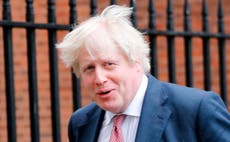Theresa May can reverse most of the Lords defeats – except on a customs union
The government has been defeated 14 times in the House of Lords on the EU Withdrawal Bill, but most of those amendments will be reversed when the bill returns to the Commons

It sounds dramatic: the government has been defeated 14 times in the House of Lords on the EU Withdrawal Bill. But only two of those defeats will be tricky for Theresa May to reverse when the bill returns to the the House of Commons.
And if the prime minister cannot reverse them, she will no doubt sail blithely on, intoning, “Nothing has changed”, even if it has.
The House of Lords takes its role as a revising chamber seriously. Peers like to think it is their job to warn the Commons to think again if they think the national interest demands it. But they accept that the Commons is the elected chamber and that if there is a majority there for a course of action, after the Lords has asked it to think again, it must go ahead.
Specifically, that is the view of Angela Smith, the Labour leader in the Lords, and of her frontbench colleagues. Which is important, because they are semi-independent of Jeremy Corbyn. The Labour lords are more anti-Brexit than the Labour leadership in the Commons, but in the end they do not think they have the right to frustrate the will of the elected house.
So, when the Commons overturns Lords amendments, they will stay overturned. Yesterday’s amendment trying to force the government to keep Britain in the single market, for example, will be reversed. Corbyn is opposed to the single market and, even if he switched opportunistically to try to defeat the government, too many of his MPs would refuse to follow him. Labour MPs for northern Leave seats, such as Ed Miliband and Caroline Flint, argue that Brexit must mean an end to free movement of people, which is what the single market requires.
On most of the rest of the amendments, Labour may be united (apart from a handful of Eurosceptic diehards), but the only Tory rebels will be Kenneth Clarke and Anna Soubry, who would not be enough to defeat the government.
The two amendments on which Theresa May faces defeat are the customs union and the so-called meaningful vote. On the customs union there are certainly more than 12 Tories prepared to vote against their government – enough to overturn May’s majority even if Kate Hoey and the other hardcore Labour Eurosceptics support the government.
That is why the Commons votes are being put off for as long as possible, although the pile-up of delayed Brexit bills now threatens round-the-clock sittings of the Commons in the autumn and winter.
The prime minister hopes that her customs partnership plan will be sufficiently like a customs union to keep enough of the Tory rebels on board, and sufficiently unlike one to keep Boris Johnson on the other side. If that doesn’t work, and she loses the vote in the Commons, she could try to ignore it. She could say she tried to negotiate a customs union but the EU was unreasonable.
That is where the “meaningful vote” amendment comes in, because it tries to give parliament the power to force her back to the negotiating table if the Commons doesn’t like the deal she makes. No one knows how or whether that would work.
Or she could give in and accept a customs union – and defy the hard Brexiteers to try to bring her down. If she did, it would be because that is what a majority of the House of Commons demands, not because she was defeated in the House of Lords.



Join our commenting forum
Join thought-provoking conversations, follow other Independent readers and see their replies